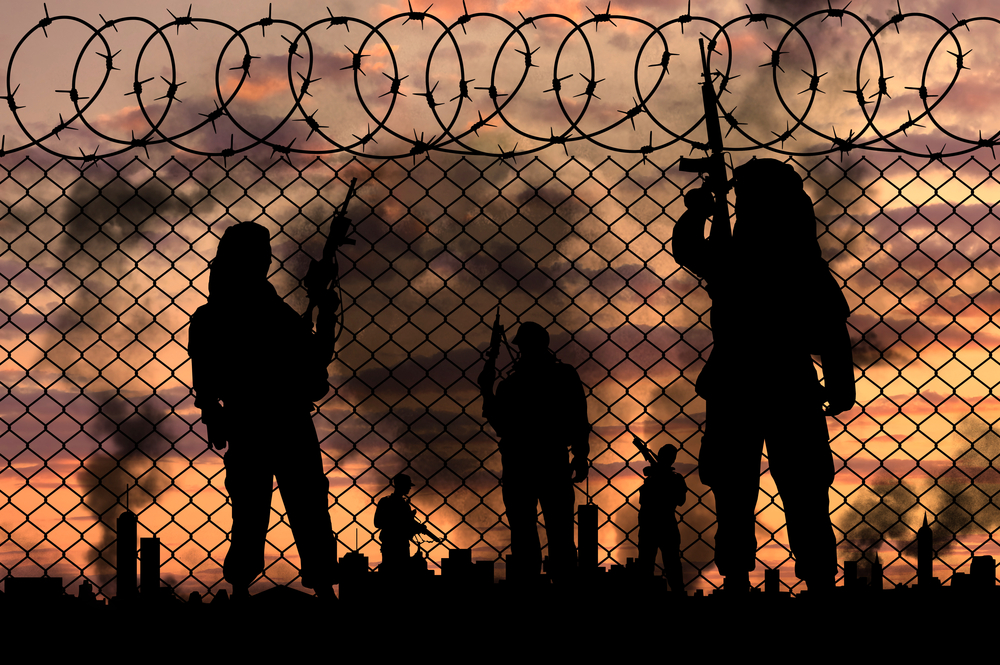ISIS seeks to expand its sphere of influence in Afghanistan to become the most powerful organization in the country, that is why it attacked Tora Bora, on June 15, which was known as a stronghold of Al-Qaeda leader Osama bin Laden during the US war on Afghanistan in 2001, and was under Taliban's control. The spokesperson of Taliban, Zabihullah Mujahid declared that ISIS captured some villages but did not have full control over them. Although Afghan authorities confirmed the restoration of the area held by ISIS, that does not mean the group might not launch other attacks again, which raises many questions about the objectives behind such move.
Interrelated Developments
ISIS assault on Tora Bora comes at the time when the group is trying to significantly expand and tighten its grip on the areas it holds, as was demonstrated in the visual version, published on February 22, 2017 titled "life under Sharia", showcasing daily life in districts and villages under its control and the strict laws it enforces.
Likewise, the attack on Tora Bora, which touted "a stronghold", comes at the time of an ongoing major offensive by the group against government forces, similar to the attack on Kabul military hospital on March 8, 2017, killing 49 people, and targeting the Supreme Court in the capital, killing 21 people. This was one of the reasons for the government forces to mount campaigns against the group to degrade its capacity to expand inside Afghanistan.
Varied Objectives
By trying to capture Tora Bora, ISIS seeks to accomplish many objectives as follows:
1- End the symbolism of Al-Qaeda: Tora Bora area, which ISIS wants to control, constitutes an important symbol of Al-Qaeda, ISIS arch-rival, because it was the bastion of its former leader Osama bin Laden, so ISIS' attack on some of its villages can be viewed as an attempt to deal a blow to a symbol of Al-Qaeda, not only in Afghanistan but also in countries where there are elements of the latter.
That may probably explain the eagerness of ISIS to post a recording online, on June 15, 2017, declaring that "Its flag is fluttering over the mountains of Tora Bora" and that "its fighters seized the mountain hideout of former leader of the organization", which can represent a strong challenge to the Al-Qaeda leadership in maintaining its prestige in the eyes of its members and different branches.
2- Flex muscles: one cannot separate the move by ISIS to launch attacks on Tora Bora from the one taken by the US on April 13, 2017, to drop the largest non-nuclear bomb in the world, the so-called "Mother of all Bombs", on one of the bastions of the organization in Eastern Afghanistan, killing dozens of its elements and destroying a large part of its equipment. This move was coupled with the statements made by the Commander of US forces in Afghanistan General John Nicholson, vowing to eliminate ISIS in Afghanistan. Thus, recent moves by ISIS can be viewed as an attempt to send a message that it still has the capacity to extend its influence despite the strong strikes carried out by American troops or government forces.
3- Degrade Taliban: by controlling Tora Bora, ISIS may be trying to put more pressure on Taliban which gives a particular importance to this area since the outbreak of the U.S. war on Afghanistan, in a way that affects its internal cohesion and lead some leaders and cadres to defect and join ISIS.
ISIS seeks at the current stage to recruit the largest number of sympathizers to offset losses incurred as a result of involvement in armed confrontations over more than one front.
4- Provide a safe stronghold: some observers suggest that ISIS, by trying to capture Tora Bora, aims at establishing a new stronghold that might help reduce the repercussions of military strikes against it, especially after the US move to use powerful weapons to attack ISIS-held areas, similar to what happened in March 2017.
More precisely, the group is seemingly trying, in the current period, to repeat the scenario of Al-Qaeda and Taliban taking refuge in mountains and caves of Tora Bora during the US war on Afghanistan, which suggests that it is probably gearing up for a new phase of escalation with its enemies.
Accordingly, these observers do not dismiss that ISIS has begun preparations to receive some of its elements who were fighting in its ranks in both Iraq and Syria, following its diminished influence in both countries due to military operations carried out by the coalition forces and other parties.
5- Geographical spread: it seems that ISIS considers capturing Tora Bora as a beginning of a new stage of spreading in the areas controlled by Taliban or government forces, a move that was reflected in the statements of Abu Omar al-Khurasani, a leader in the group, who said: "we are in Tora Bora, that is not the end, we plan to grab more territories controlled by the Afghan government and Taliban".
In conclusion, it could be argued that although ISIS in Afghanistan has not succeeded in spreading and expanding with the same pace it did in both Iraq and Syria, this does not negate the fact it represents a real danger to Afghanistan or neighboring countries. This is especially given that its recent attack on Tora Bora may be the beginning of a series of attacks to take over several strategic areas, to expand its influence and strengthen its capacity to be better able to cope with pressures.


